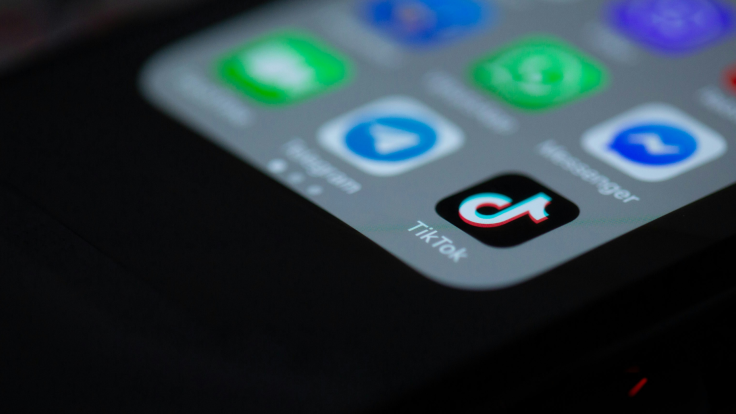Teen Dies Doing Deadly TikTok 'Dusting' Trend: These Viral Challenges Could Cost You Your Life
A slew of deaths have been linked to teens participation in viral internet challenges.

A teenager has died in Arizona after taking part in a viral TikTok trend known as 'dusting.'
19-year-old Renna O'Rourke passed away from sudden sniffing death syndrome after spending four days in the intensive care unit (ICU).
O'Rourke inhaled household cleaning products as part of the viral dusting trend, also known as 'chroming' or 'huffing', that sees teens inhaling products like computer dusting spray in an attempt to get high.
O'Rourke's parents have now issued a warning to other parents as they try to raise awareness about the dangers of dusting.
'There's no ID required. It's odourless. It's everything kids look for,' O'Rourke's mother told AZ Family. 'They can afford it, they can get it, and it doesn't show in mom and dad's drug test,' she added.
Dusting is the latest in a string of viral fatal trends and challenges swirling around the internet. Here are three other viral trends parents should be aware of that could cost their teenager their life.
The Blackout Challenge
This deadly TikTok challenge first went viral in 2021 and has resulted in multiple fatalities.
Participants film themselves choking or hyperventilating until they blackout, and then record the adrenaline rush they receive when they regain consciousness.
Also known as the 'choking' or 'pass-out' challenge, the trend has been linked to a number of deaths, many of them young children.
Parents of four kids who died as a result of the trend sued TikTok in a wrongful death lawsuit this month. The four children, all aged under 15, fit a similar demographic, with three of them living in the same city.
Founding attorney of the Social Media Victims Law Center Matthew Bergman said, 'TikTok's algorithm purposely targeted these children with dangerous content to increase their engagement time on the platform and drive revenue.'
The lawsuit called TikTok 'a dangerous and addictive product that markets itself as fun and safe for children, while lulling parents into a false sense of security.'
TikTok claims that they have blocked searches and hashtags related to the blackout challenge since 2020.
The Benadryl Challenge
As part of this fatal TikTok trend, teens take large doses of the allergy medication, Benadryl, and post videos about the hallucinations they experience from it. The trend has resulted in teens overdosing, with some falling into comas or dying.
A 13-year-old boy passed away in 2023 six days after taking part in the challenge. According to his father, the boy was at home with friends when he decided to try out the trend. As his friends filmed, he began seizing. His father was told at the hospital that his son would never wake up.
TikTok says it prohibits dangerous activities or challenges on the app.
'Because we aim to ensure a safe and enjoyable experience for everyone, we restrict behaviors and content that may be harmful and do not allow the promotion of dangerous activities and challenges for our users,' the platform states.
TikTok claims that it aims to remove these videos as well as hashtags and searches relating to the trend before they are reported.
The Blue Whale Challenge/The Game
Perhaps the most infamous social media challenge, this trend manipulates teens and children into performing increasingly dangerous tasks over a 50-day period.
While tasks start off relatively harmless, such as listening to a specific song, they grow more threatening each time such as carving a whale into their arm. The final task is always suicide.
Participants are given their tasks by an anonymous user, and if they want to pull out of the challenge, they're threatened with doxing or content being released online.
The challenge allegedly started in Russia 10 years ago, and is widely considered 'the internet's deadliest game.'
With viral internet challenges dating back over a decade, 'dusting' is only the latest in a constantly emerging network of dangerous trends popping up on the internet.
From dusting to Benadryl overdoses and suicide games, social media has become a hotbed of hidden dangers for young users.
While TikTok maintains that it actively removes harmful content, cases like O'Rourke's show that these trends continue to resurface, sometimes fatally.
For parents, educators, and policy-makers, the message is clear: stay informed, start conversations, and take action—because the next viral challenge could cost a child their life.
© Copyright IBTimes 2025. All rights reserved.






















